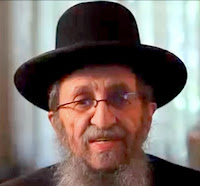Rabbi Dovid Katz wrote an important article dealing with attempts to deal with the problem of mamzer by using a shifcha. It is available here www.aishdas.org/avodah/faxes/mamzerShifcha.pdf. This is page 13 and 30 of the article
==============================================
Minchat Yitzchak: V 47: In the aftermath of the Holocaust, many displaced persons were unaware of the fate of their spouses and loved ones. Families had become separated, and in the period immediately following the end of World War II, there were cases where survivors believed that their families had perished when in reality they had survived. It thus happened a number of times that a woman, believing herself to be a widow, married another man after the war, had children by him, and subsequently discovered to her horror that her first husband had never died! The chaotic conditions prevailing in those years, especially in the DP camps and Eastern Europe, led many people to marry without consulting a rav or Bet Din, so many people were not even aware of the ramifications of their status.
R. Yitzchak Weiss, author of Minchat Yirzchak, was consulted about such a case. R. Tzvi Elimelech Kalish, Rabbi in Munkatch and subsequently in Bnei Brak, was faced with the situation of an entire group of young men who were the children of mothers who had remarried after the war, only to find out later that their first husbands were still alive. As the offspring of second "marriages" which in the eyes of Jewish law were adulterous, these young men were mamzerim. Two decades after the war, these young men, who had grown up in Hungary, wished to marry. R. Kalish therefore asked whether it was actually possible to convert gentile woman as shefachot kna'aniyot in the twentieth century.
--------------------------------------------------------------------------
In Teshuvot Vehanhagot I 764, R. Moshe Sternbuch describes how he was faced with a situation in South Africa of a woman who had had an Orthodox marriage, but had remarried without benefit of a get, a halachic divorce. Her husband had been relucant to give her a get, so she remarried in a Reform ceremony. Obviously, the children from her "second marriage" were mamzerim because in the eyes of Jewish law she was still married to her first husband at the time she had children by another man. Some years later, the woman became a ba'alat teshuva (repentant), sought and obtained a get from her first husband, and even sent her children to Orthodox day schools. She was nevertheless faced with the consequences of her second marriage: her children were mamzerim .
In Teshuvot Vehanhagot I 764, R. Moshe Sternbuch describes how he was faced with a situation in South Africa of a woman who had had an Orthodox marriage, but had remarried without benefit of a get, a halachic divorce. Her husband had been relucant to give her a get, so she remarried in a Reform ceremony. Obviously, the children from her "second marriage" were mamzerim because in the eyes of Jewish law she was still married to her first husband at the time she had children by another man. Some years later, the woman became a ba'alat teshuva (repentant), sought and obtained a get from her first husband, and even sent her children to Orthodox day schools. She was nevertheless faced with the consequences of her second marriage: her children were mamzerim .
In seeking a solution to this tragedy, R. Sternbuch likewise reasoned that it ought to be possible for a gentile woman to become a shifcho even in modern-day South Africa inasmuch as the entire process would be a legal fiction to which the state would not take exception. In the end, however, R. Sternbuch concluded that if such great authorities as the Minchat Yitzchak and Chelkat Yaakov were unable to sanction such a procedure, in the one case on account of halachic objections and in the other on account of a reluctance to rule absent support from other poskim, then such an option was not practicable nowadays. R. Sternbuch had no choice but to advise the mamzerim to marry converts, knowing, however, that their children would also be mamzerim down to the end of time. As he put it:
ועל כל פנים אין לנו לפרוץ גדרים בייחוס שלא שמענו מאביתינו כן מעולם אף שהיה יכול להציל פסול זרעו לעולם
In any event, we ought not to "break fences" [i.e. make radical innovations] in matters involving family relations. We have never heard of our ancestors [resorting to such a procedure] even though [the mamzer] would be able to save his progeny [from the taint of mamzerut] forever.









